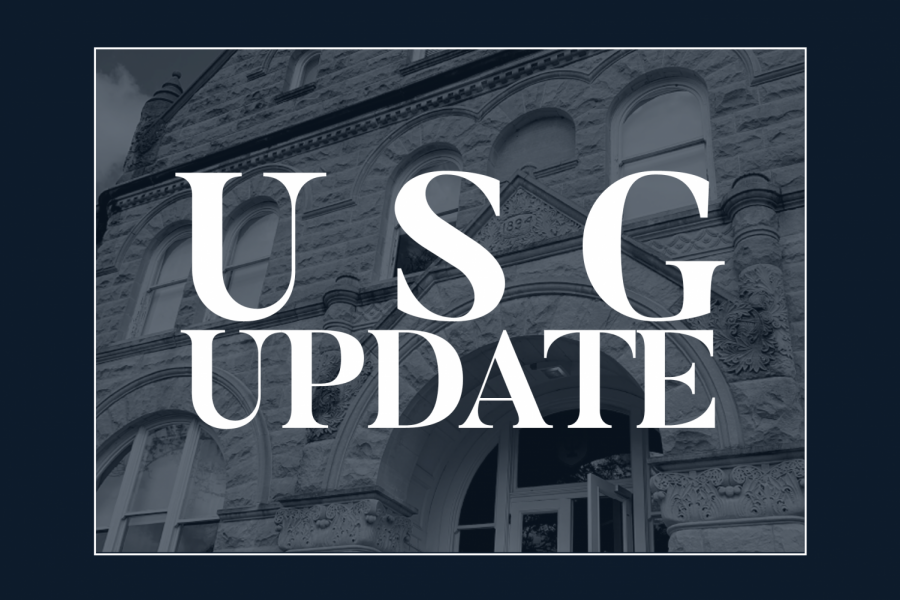USG sexual assault meeting posed difficult questions for administrators
December 8, 2021
Tulane University Vice President for Student Affairs Dusty Porter was asked about the University’s response to the “several” formal sexual assault allegations made regarding a former Tulane athlete.
His response? “I’m not responsible. Athletics is not in my portfolio.”
Porter later clarified that if a student-athlete were to be accused under the conduct process, they would undergo the same process as non-athletes.
On Dec. 7, the Undergraduate Student Government hosted an hours-long listening session between administrators and the student body. Students provided testimonies and asked questions around the sexual assault epidemic on campus, university support for sexual assault survivors and Title IX processes for the accused and accusers.
Most of the questions directed at the administration were answered by Laura Osteen, assistant vice president for student affairs, who reports to Porter.
Julia Broussard, interim assistant provost for Title IX and Title IX coordinator, was scheduled to attend alongside Porter but was unable to due to mitigating circumstances. Osteen attended in her place.
Osteen reiterated the legal obligations Tulane must abide by, which require the university to offer a fair process to both involved parties.
Maggie Green, a junior, asked what concrete steps were being taken to mitigate the recurrent theme of victim blaming and lack of “trauma-informed care.”
Osteen said “the redesign that I committed to and said was starting is about how do we tease out those processes so that no student would be sitting in a conversation around accountability when they’re actually in a conversation that they wanna have around pain and harm.”
Questions from USG’s anonymous platform challenged Tulane’s response to holding the repeatedly accused accountable.
In response, Osteen acknowledged the complex reporting system necessary for legal action. “What I believe came up in those stories are stories of perpetrators that are known within your community but are not known within our processes.”
As the forum continued, Osteen and Porter were met with students’ concerns for their safety and wellbeing on campus.
One question challenged the efficacy of the Counseling Center. Osteen said she does not have detailed information on the restructuring of the center and was unable to comment further.
Several attendees voiced their disappointment with Tulane’s efforts to uphold intersectionality.
Mia Harris, a senior and a founding member of the No More Tears Collective, announced her establishment of the anti-sexual violence coalition of Black survivors.
“I have done a lot of previous work on this campus surrounding issues of racism, but I never quite felt welcome in sexual violence spaces, just because of inherent whiteness,” Harris said.
Harris expressed a desire to see better representation and diversity among administrators. “I don’t, personally, don’t think there’s any way that an administration that doesn’t look like me can begin to understand the issues that people who look like me go through everyday.”
Osteen agreed with Harris and went on to list the four approaches Tulane plans to enact. “One, understanding the history of it, of how it shows up here on this campus and what it’s looked like.”
Osteen’s efforts to promote intersectionality included ensuring proper representation among structural resources, equitable dissemination of power and acknowledgment of the emotional and cultural impacts of underrepresentation.
Concluding the session, junior DaSean Spencer, USG vice president for student life, delivered a final statement to all in attendance. “When assaults on this campus and within this very body prevailed in the public eye and [assaulters] are allowed to have their redemption arcs, we stripped the only thing victims have left: the power of their voice.”























Do better Tulane • Dec 9, 2021 at 9:55 am
Tulane Admin needs to do better. we pay thousands of dollars to attend this institution but nothing is ever staffed, working, or just. campus health sucks. commons suck. dorms suck. admin suck. assaulters get to walk around campus free, while the victim has years to a lifetime amount of trauma to deal with! this is ridiculous !
DO BETTER TULANE!